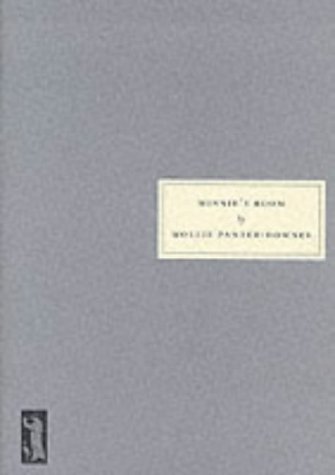

Minnie's Room: The Peacetime Stories of Mollie Panter-Downes
D**D
what ho
Ms.Panter-Downes is one of the funniest writers of any era.A delightful artist of the understatement this collection of the English(and it is the English)stories about how people 'win the peace' has as many laugh out loud parts as the excellent wartime stories.
M**N
Good collection of post-war short stories
Not quites as good as her war-time short stories but this is still worth reading, good sense of post-war Britain.
S**S
Delicate, insightful, wise
The stories in Minnie's Room appeared in the New Yorker and publication ranges from 1947 to 1965. I haven't read her wartime stories, published by Persephone in Good Evening, Mrs. Craven, so I can't comment on whether peacetime changed Panter-Downes' tone, but it is fairly consistent across these two decades. Like the best short story writers, she is concerned with the minutiae of life, examining ostensibly insignificant events and the interplay of human relationships. With these she is never heavy-handed; there is a much-needed lightness of touch in the revelations falling upon her characters. My favourite story of the collection is 'What are the Wild Waves Saying?' which is framed through a woman's recollections of a childhood holiday, seeing a young married couple being nothing like she expected. The denouement, in other hands, wouldn't have worked - but Panter-Downes' pen is gentle enough to make it memorable rather than mawkish.Another story, 'The Willoughbys', relates well to yesterday's Persephone, Princes in the Land: here the situation is reversed, with upper-class girl falling in love with lower-class man (and not remotely like Lady Chatterley, of course). Only a writer of Panter-Downes' subtlety could reveal how little both families appreciate the union, and the complicated feelings of indignant surprise and confliction which the four parents have on discussing the match.Nicola Beauman has often held Mollie Panter-Downes up as an example of great writing, both in her Persephone volumes and in the classic post-war novel One Fine Day (which is published by Virago). It is easy to see why Panter-Downes is held in such esteem. I especially liked her use of observant details or revealing similes: Norah, who had determined to keep the house going at any cost, visited employment agencies and explained the Sotherns' need to unimpressed women presiding over dog-eared ledgers that had a disconcerting look of being theatrical props, full of false names. ('Minnie's Room') London seemed wrapped from end to end in fog. The city was as mottled and dun-coloured as the board covers of some dirty old volume that opened here and there to disclose a thrilling illustration ('Intimations of Morality')In terms of themes, the publishers' introduction notes that many of the stories have middle-class characters striving to live their pre-war life. Another strand I noticed was the idea of faces revealing truth: The woman murmured something, and her head rolled over on the pillow so that her eyes stared into mine, and deep in the sockets I saw a flicker of something resembling a smile, like the dim light of a house one had thought was empty. I was too awed to smile back. ('Intimations of Mortality')Time and time again faces and eyes suddenly disclose traits or truths previously hidden - and that is, perhaps, as apt a metaphor as any for what Panter-Downes does with the short story. In amongst narratives of ordinary people, often conducting ordinary lives, we suddenly find ourselves face-to-face with a character and, cleverly, subtly, Panter-Downes unveils a previously unsuspected angle to the story - and, often, to the world.
C**N
Middle class blues
Mollie Panter-Downes' stories show the decline of the middle classes in Britain after WWII. Her stories show the effects of the social and economic changes the war brought, the problem of getting servants, the hardships of being on a fixed income, the falling standards of young people who had experienced more freedom and responsibility than their parents could ever have dreamed of.They are honest yet unsentimental stories of people who suddenly don't fit in. In "The exiles", Colonel and Mrs Stanbury decide to emigrate to an outpost of "Empire" in the hope that they can keep up their position in society as they are no longer able to do at home. In "Minnie's room", the Sothern family are devastated when their cook, Minnie, fulfills her dreams of leaving service and having a room of her own. The story says a lot about the arrogant assumptions of the family in their attitude to Minnie and what they see as her betrayal. These stories are beautifully written, they were first published in the New Yorker in the 1950's, and they recreate an England that has gone forever.
Trustpilot
3 weeks ago
2 months ago